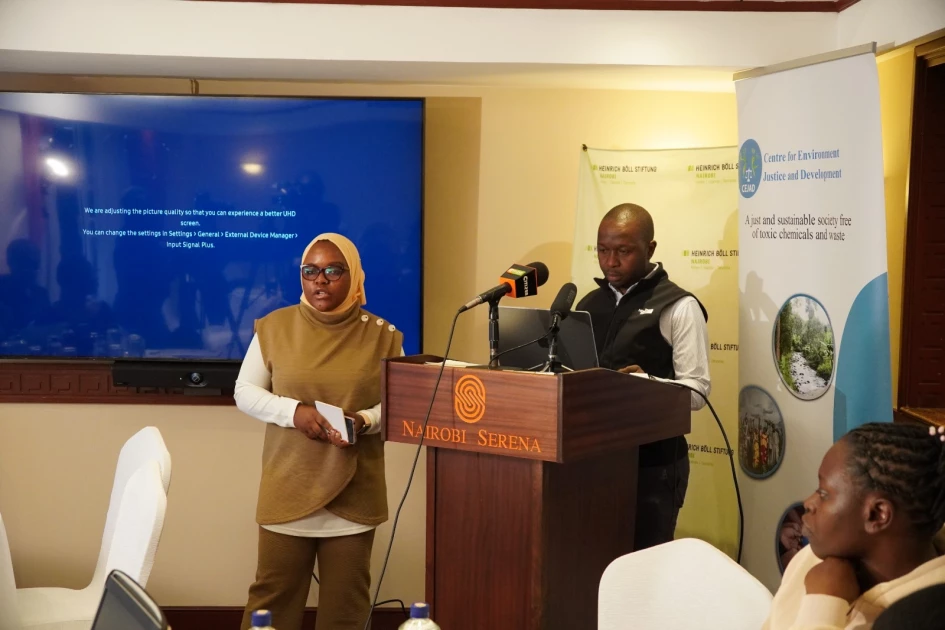Kenya tightens laws on plastic bags amid global push for sustainability

Faiba Kombo, Communication Programme Coordinator, Heinrich Boll Foundation on the left with Mr. Griffins Ochieng, Executive Director CEJAD during a media briefing in Nairobi, Kenya.

Audio By Vocalize
The new regulations took effect on 4th November 2024, granting non-woven bag manufacturers a one-month grace period to comply.
Within this grace period, manufacturers are required to declare their existing stock of plastic bags and outline alternative mechanisms for phasing them out. The legislation also prohibits the importation of plastic bags, including those brought in by travellers or as packaging for imported goods.
Exceptions will only be made under strict guidelines for special use cases.
Dr Ayub Macharia, the National Environment Management Authority (NEMA) regulations enforcement manager, addressed the media alongside Kenyan civil society organizations. He highlighted that some manufacturers have circumvented the 2017 ban on plastic bags by adding non-biodegradable chemicals to their products, thereby violating environmental laws.
Under the new legislation, individuals or entities found manufacturing, selling, or using plastic bags in violation of the law face penalties of up to four years in prison, fines of up to KES 2 million, or both.
Kenya’s crackdown on plastic bags comes just days ahead of the fifth and final United Nations Intergovernmental Negotiation Committee (INC) meeting, which aims to develop a global plastic treaty.
The meeting, scheduled to take place in Busan, South Korea, on 25th November 2024, follows ongoing climate discussions in Baku, which have emphasized the need for robust international action.
Griffins Ochieng, Executive Director of the Centre for Environment Justice and Development (CEJAD), underscored the importance of African solidarity in combating plastic pollution. “African countries, as net importers, bear the brunt of plastic pollution,” said Ochieng.
“It’s time for African leaders to stand united and demand a treaty that prioritizes eliminating hazardous chemicals, ensures transparency, and incorporates mechanisms for labeling, tracking, monitoring, and data-sharing.”
Faiba Kombo, Communications Program Coordinator at the Heinrich Böll Foundation, called on Kenya and other African nations to amplify civil society’s voice in global negotiations. “This is a critical moment for Kenya and Africa to champion a treaty that addresses the global plastics crisis and ensures the protection of people’s health and the environment,” she stated.
Globally, plastic production has more than doubled in the last 15 years, with annual output reaching 400 million tonnes. However, less than 10% of this plastic is recycled, leaving vast amounts to accumulate in ecosystems.
This pollution harms biodiversity and burdens marine and terrestrial environments. Experts warn that plastic pollution is not only an environmental challenge but also a crisis affecting climate, health, and social justice.
Kenya’s decisive action and the upcoming INC5 negotiations are seen as pivotal moments in addressing these issues. Environmental advocates hope that these efforts will set a precedent for other nations to adopt stricter measures and contribute to a comprehensive global response to plastic pollution.


Leave a Comment